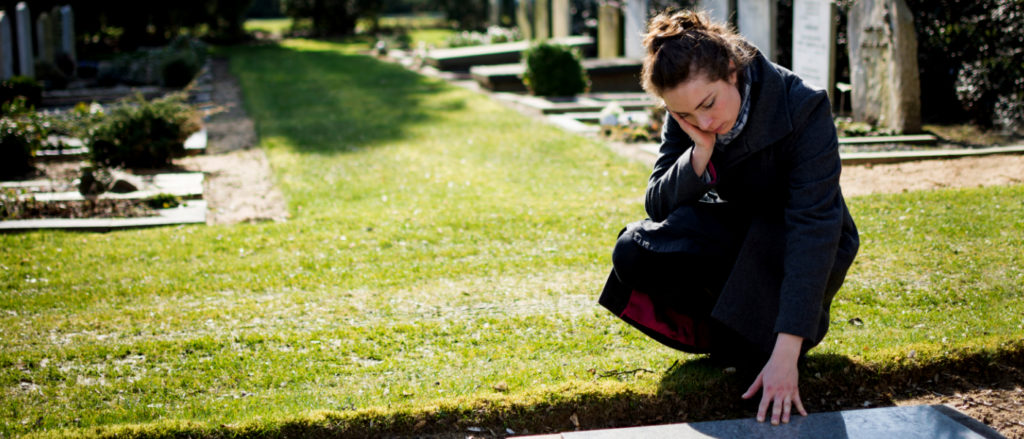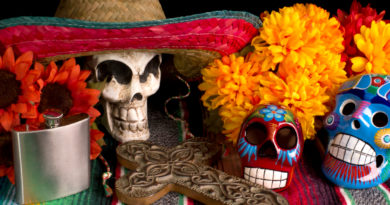Coping with the Anniversary of a Loved One’s Death

even years later. Photo © iStock.com/mactrunk
Regardless of how many years pass after the death of a loved one, the date on which he or she died usually remains significant in our hearts and minds. On the actual anniversary date, or before or after, it’s common to re-experience the pain of grief again even many years later, but the following suggestions can help you cope.
What is an Anniversary Grief Response?
An anniversary grief response occurs when an individual later re-experiences the effects of grief during the period leading up to, on, or even after the date on which a loved one died. While quite common on the first anniversary of a death, you might experience an anniversary reaction many years later — long after coping with the grief you experienced in the immediate aftermath of losing your loved one and later feeling like things have returned to normal.
Also known as an anniversary grief reaction, anniversary response, anniversary reaction, or reawakened grief, the effects of an anniversary grief response can include: elevated feelings of sadness, loss, depression, loneliness, anxiety, fatigue, irritability or anger, as well as physical symptoms, such as sleeplessness, lack of an appetite, difficulty concentrating or an increase in distressing memories, among other things.
Moreover, an anniversary grief response can occur without warning due to an unconsciously perceived “trigger,” such as hearing a particular song, running across a forgotten photograph, smelling a perfume or cologne you associate with your loved one, attending a funeral or memorial service for someone else, a scene in a movie… or any of countless other ways.
How to Cope with an Anniversary Grief Response
If you find yourself feeling anxious or worried that you won’t be able to forget about your departed loved one as the anniversary of his or her death approaches — or you are already experiencing some of the effects noted above — then the following suggestions might help you cope.
1. Accept the Power of Grief
Many people mistakenly think that grief is a single emotion, but normal grief is actually a powerful, multifaceted response to the death of a loved one that can affect us physically, emotionally, mentally and even spiritually. As noted above, grief often persists and, regardless of how many years ago a death occurred, you might find yourself again experiencing its effects with their original rawness and power.
Therefore, instead of trying to deny or avoid your anniversary grief response, you should accept mourning as a perfectly natural and normal reaction to the death of somebody you loved, regardless of how long ago it happened. Grief is neither an enemy to avoid at all costs, nor should you feel that you should “be over it by now.” The person who died was significant to you and your life in many ways, so remember the line from the 1968 Broadway play I Never Sang for My Father: “Death ends a life, but it does not end a relationship.”
2. Schedule “Memory Time”
If you’re worried or fear that you won’t be able to forget about your departed loved one on the anniversary of his or her death, then you should first understand that you can’t and shouldn’t even try. Instead of letting worry and the fear of remembering your loved one dictate your actions and feelings, empower yourself by proactively anticipating the anniversary and incorporating his or her memory into your plans.
You can accomplish this by consciously scheduling “memory time” into your day(s) — a period in which you will give yourself permission to grieve openly in whatever manner you need — whether by yourself or in the company of others who knew and loved the deceased. When and how often is up to you; it might be for an hour, an evening or the entire day on the actual anniversary date, or before and/or afterward. Only you know how your anniversary grief response affects you and what you need to cope.
Who you spend your memory time with is also up to you. If you wish to be alone with your memories and feelings to have a good cry, then do so. If you desire the support of family members or friends as you share your favorite memories, then let them know that this is a difficult time for you and you’d appreciate their company. Regardless of how and when you spend your memory time, particularly if the anniversary falls on a holiday, mourners often find that proactively scheduling memory time can help them confront the fear of being surprised by their grief at inopportune moments.
3. Distract Yourself
In addition to scheduling memory time(s), consider making plans to keep yourself busy before, on or after the anniversary of your loved one’s death. Again, only you know how your anniversary grief response might affect you, but grief often hits us most acutely when we’re alone with our thoughts and with nothing to do. If you worry that this might happen, then understand that there is nothing wrong with doing something purely to distract yourself from your grief, even if just for an hour or two.
For some mourners, simply getting out of the house for a while to take a walk through the neighborhood, ride a bike in a local park or run some errands can prove enough to help them get over the difficult times when their grief might otherwise overwhelm them. Some find that inviting a friend out for coffee or a meal can effectively help them clear their heads and offer a fresher perspective. And still others simply immerse themselves in a favorite hobby or household chore(s) in order to channel the energy of their grief and benefit from the positive feeling of accomplishing something.
Regardless of what might work for you and your chosen activity, remember that your anniversary grief response is very real and that effectively coping with the loss of a loved one is often measured day-by-day or even hour-by-hour. Grief is hard work, so do whatever you need to do to cope right now.
4. Start a Tradition
One of the most challenging aspects of coping with an anniversary grief response can involve the flood of now-painful memories on or near the date the death occurred (which some refer to as the “deathiversary”). During this time, it is common to recall previous happy or memorable occasions — such as Christmas, Thanksgiving, birthdays, anniversaries and other significant moments — and realize your loved one will no longer be a part of such annual gatherings.
Unfortunately, we often fail to recognize or appreciate the important role of traditions in our lives, such as decorating a Christmas tree with our family every year or making the pilgrimage to grandmother’s house on Thanksgiving Day, until after a death occurs. But you can take advantage of the very thing that gives holidays, birthdays and other significant dates meaning by establishing a new tradition of your own.
If your loved one enjoyed working to improve the lives of others or caring for the environment, for example, you might volunteer your time on this date to help a local service organization, your place of worship or some other important cause fulfill its mission. (If you need ideas, then visit Volunteermatch.org for opportunities near you.) Likewise, if he or she enjoyed a particular hobby or activity, or traveling to a particular location, consider doing the same thing in honor and remembrance of the deceased.
The point is that there are numerous meaningful ways to remember a loved one on the anniversary of his or her death, a holiday, or any other significant day of the year. By consciously choosing to infuse meaning into an otherwise painful anniversary, you can begin to transform a date you dread into one that generates future positive memories and feelings. In addition, take comfort in the thought that your loved one would appreciate your effort to keep his or her memory alive!
5. Power in Numbers
Mourners often feel isolated and alone following the loss of a loved one. This can result from well-meaning family members or friends saying the wrong thing, people comparing or judging their grief response, or just the nature of grief itself, among various reasons. While many grievers seek the comfort, support and solace of family members and friends in order to cope, others wage a private, internal battle against grief and hide/don’t share how the death of a loved one affects them, even when doing so might help.
Unfortunately, many mourners do not realize that talking about a loss with others and sharing how it’s affecting them personally can prove beneficial and even cathartic when coping with grief, even years later. While not for everyone, attending a grief support group — a moderated meeting of people also dealing with the death of a loved one (often due to a similar cause) — might help you cope right now. Don’t feel afraid to look for a local grief support group you can attend, even temporarily, as the anniversary of your loved one’s death approaches.
6. Be Gentle with Yourself
Whether you adopt some or all of the above suggestions, perhaps the most important thing you can do to help yourself cope with the anniversary of a loved one’s death is to tell yourself it’s okay to feel whatever you’re feeling, regardless of how many years have passed since the death occurred. The real or imagined pressures that the bereaved feel to act a certain way when mourning a death add an unfortunate and unnecessary burden to those grieving a loss and can actually inhibit the natural process of working and growing through grief. This is particularly true if your loved one died several years ago because you, or family members or friends, might think enough time has passed and it’s time to “get over it.”
Therefore, regardless of whatever external or self-imposed preconceptions you might face as the anniversary of a loved one’s death draws near, grant yourself the gift of permission to experience whatever range of emotions you might feel in order to help you let go of your grief. There simply is no “correct” way to grieve because each of us is unique, just like the relationships we form. Common to all, however, is the fact that grieving the death of a loved one is a natural, necessary and ultimately cathartic human process.







